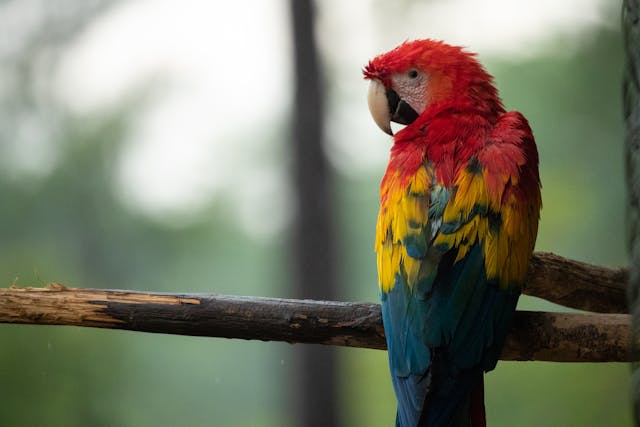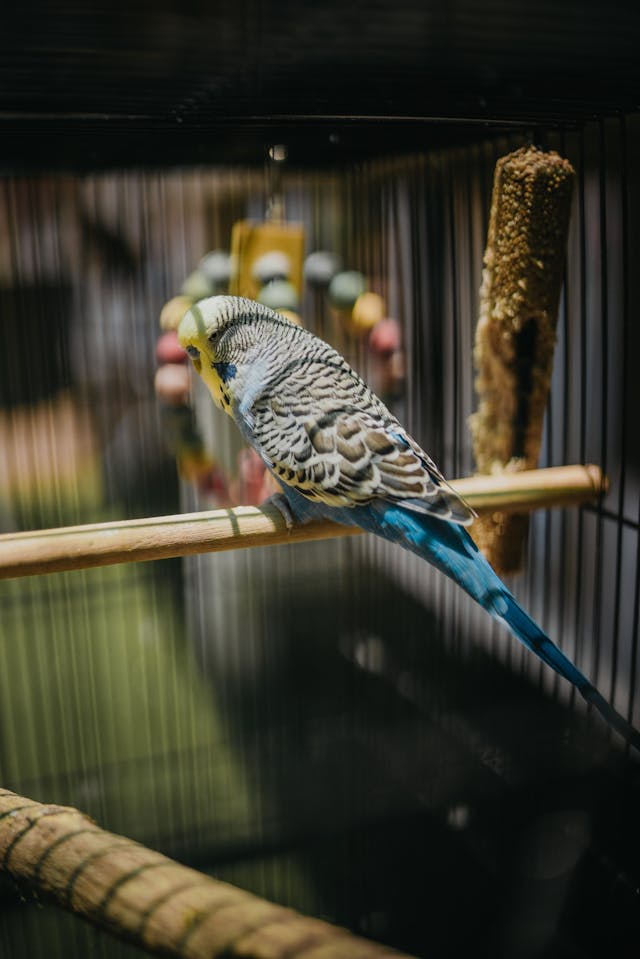Deciding to bring a pet bird into your home is a significant decision that requires careful consideration of various factors to ensure a harmonious relationship between you and your new avian companion. Birds are incredibly diverse, with species varying widely in size, temperament, and care needs. This blog aims to provide a thorough guide to help you choose the right pet bird, exploring the characteristics, requirements, and pros and cons of different bird species. Whether you’re a first-time bird owner or an experienced aviculturist, this guide will help you make an informed decision.
Highlighted Points
Assessing Your Lifestyle: Understanding your lifestyle and how much time you can dedicate to your pet is crucial to choosing the right bird.
Bird Size and Space Requirements: Different birds have different space needs; knowing how much room you can provide is essential.
Temperament and Social Needs: Birds have varied personalities and social requirements. Some are highly interactive, while others are more independent.
Noise Level: Some birds are very vocal, while others are quieter. It is important to consider your tolerance for noise.
Lifespan and Commitment: Birds can have long lifespans, sometimes outliving their owners. Being prepared for a long-term commitment is necessary.
Diet and Care: Each bird species has specific dietary and care needs that must be met to ensure their health and happiness.
Choosing the Right Pet Bird: An In-Depth GuideAssessing Your Lifestyle
Before choosing a pet bird, it is crucial to evaluate your lifestyle. Consider how much time you can devote to your bird daily. Birds are social creatures and many species require significant interaction to stay happy and healthy. If you work long hours or travel frequently, you might want to consider a more independent bird requiring less attention.
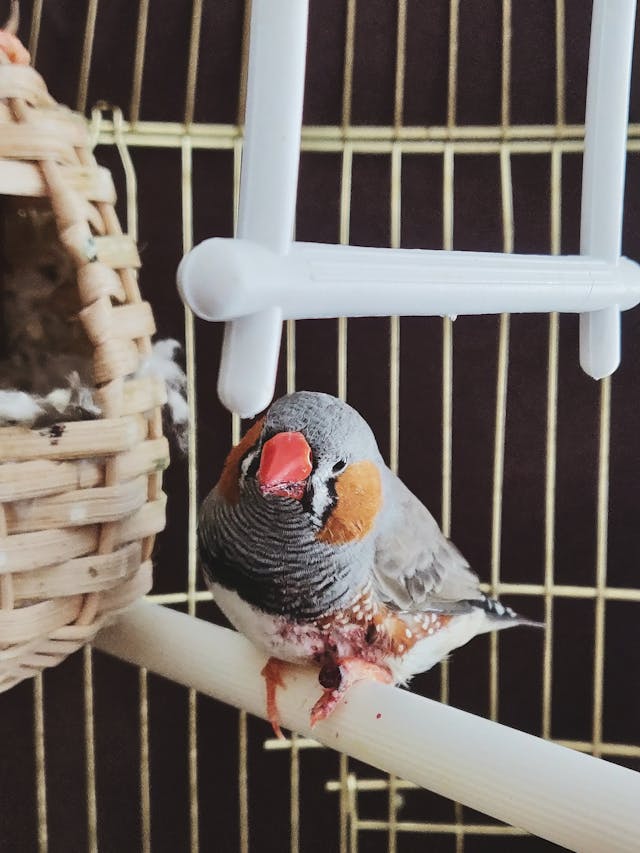
Time and Interaction
High Interaction Birds: Parrots, cockatoos, and budgerigars require lots of social interaction and mental stimulation.
Low Interaction Birds: Finches and canaries are more independent and can be content with less direct interaction.
Space Availability
Large Birds: Macaws and African Grey Parrots need spacious cages and room to fly or climb.
Small Birds: Budgies and canaries require less space but still need enough room to move around comfortably.
Bird Size and Space Requirements
The size of the bird you choose will significantly impact the space requirements. Larger birds need bigger cages and more room to move around, while smaller birds can thrive in more compact environments.
Large Birds
Macaws: Known for their large size and vibrant colors, macaws require substantial space and large cages. They are intelligent and social and need a lot of mental stimulation.
African Grey Parrots: Highly intelligent and capable of mimicking human speech, African Greys need spacious cages and plenty of toys to keep them entertained.
Medium Birds
Cockatiels: Friendly and easy to tame, cockatiels are an excellent choice for beginners. They need medium-sized cages and enjoy interaction with their owners.
Conures: These playful birds are known for their affectionate nature. They need medium to large cages and thrive on social interaction.
Small Birds
Budgerigars (Budgies): Budgies are one of the most popular pet birds. They are small, colorful, and relatively easy to care for. They need smaller cages but appreciate ample playtime and interaction.
Finches and Canaries: These birds are ideal for those who prefer less interaction. They are small and can be kept in smaller cages, but they do well with companions of their species.
Temperament and Social Needs
Birds have distinct personalities and social needs. Understanding the temperament of different species can help you choose a bird that fits well with your household and lifestyle.
1. Highly Social Birds
Parrots (Macaws, African Greys, Amazons): These birds are known for their intelligence and need for interaction. They can become very attached to their owners and require lots of attention.
Cockatoos: Extremely affectionate and friendly, cockatoos can be demanding and require constant companionship.
2. Moderately Social Birds
Cockatiels: These birds are friendly and social but less demanding than larger parrots. They enjoy interaction and can be taught to mimic sounds.
Conures: Playful and affectionate, conures enjoy being part of the family but can also entertain themselves with toys.
3. Independent Birds
Finches and Canaries: These birds are more independent and can be kept in pairs or groups. They are ideal for people who prefer to observe rather than interact directly.
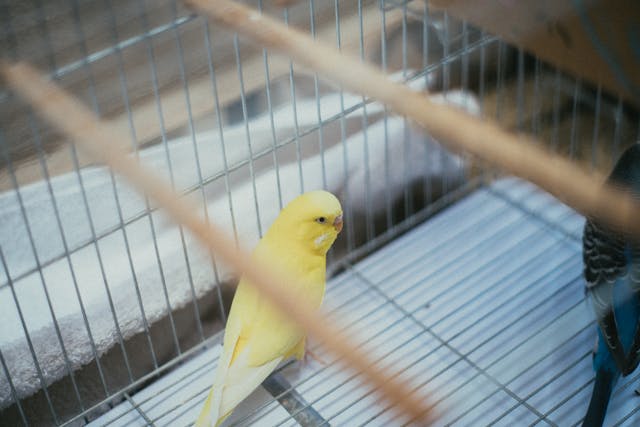
- Time and Interaction High Interaction Birds: Parrots, cockatoos, and budgerigars require lots of social interaction and mental stimulation.
- Low Interaction Birds: Finches and canaries are more independent and can be content with less direct interaction.
Space Availability
Large Birds: Macaws and African Grey Parrots need spacious cages and room to fly or climb.
Small Birds: Budgies and canaries require less space but still need enough room to move around comfortably.
Bird Size and Space Requirements
The size of the bird you choose will significantly impact the space requirements. Larger birds need bigger cages and more room to move around, while smaller birds can thrive in more compact environments.
Large Birds
Macaws: Known for their large size and vibrant colors, macaws require substantial space and large cages. They are intelligent and social and need a lot of mental stimulation.
African Grey Parrots: Highly intelligent and capable of mimicking human speech, African Greys need spacious cages and plenty of toys to keep them entertained.
Medium Birds
Cockatiels: Friendly and easy to tame, cockatiels are an excellent choice for beginners. They need medium-sized cages and enjoy interaction with their owners.
Conures: These playful birds are known for their affectionate nature. They need medium to large cages and thrive on social interaction.
Small Birds Budgerigars (Budgies): Budgies are one of the most popular pet birds. They are small, colorful, and relatively easy to care for. They need smaller cages but appreciate ample playtime and interaction.
Finches and Canaries: These birds are ideal for those who prefer less interaction. They are small and can be kept in smaller cages, but they do well with companions of their species.
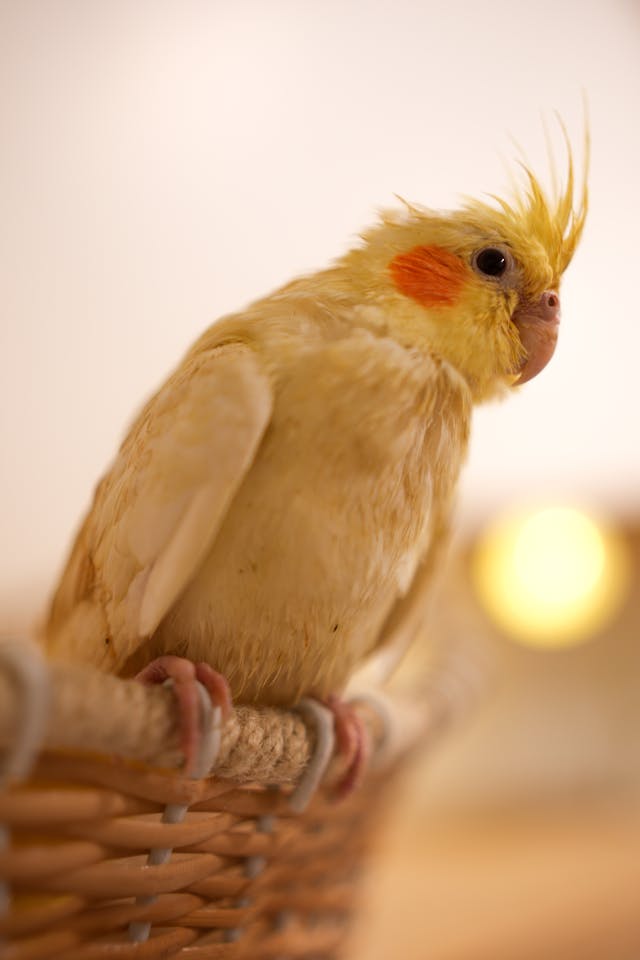
Diet and Care
Proper diet and care are essential for the health and well-being of your pet bird. Different species have specific dietary needs that must be met.
Parrots (Macaws, African Greys, Cockatoos)
Diet: A balanced diet for parrots includes high-quality pellets, fresh fruits and vegetables, nuts, and seeds. Avoid feeding them avocado, chocolate, caffeine, and alcohol, as these can be toxic.
Care: Parrots require daily interaction, mental stimulation, and a spacious, clean cage. Regular veterinary check-ups are essential to monitor their health.
Cockatiels
Diet: Cockatiels thrive on a diet of pellets, fresh fruits and vegetables, and a small amount of seeds. Calcium supplements may be necessary to prevent deficiencies.
Care: These birds need social interaction, toys for mental stimulation, and regular exercise outside their cage. Keep their living environment clean and provide a safe space for them to explore.
Conures
Diet: A diet of high-quality pellets, fresh fruits and vegetables, and occasional seeds is ideal for conures. They enjoy a variety of foods and need a balanced diet to stay healthy.
Care: Conures require social interaction, various toys, and a clean, spacious cage. Regular health check-ups and a safe environment for exercise are also important.
Budgerigars (Budgies)
Diet: Budgies need a diet of pellets, fresh vegetables, and a small amount of seeds. Providing cuttlebone or mineral blocks can help maintain their beak and bone health.
Care: These tiny birds need social interaction, toys, and a clean cage. Regular exercise outside the cage is beneficial, and they should have access to natural sunlight or full-spectrum lighting.
Finches and Canaries
Diet: Finches and canaries can eat a high-quality seed mix supplemented with fresh fruits and vegetables. They may also need additional calcium supplements.
Care: These birds require less direct interaction but should be kept in pairs or groups for socialization. Provide a clean cage with perches, nesting material, and toys for enrichment.
Conclusion
Choosing the right pet bird involves careful consideration of your lifestyle, space availability, noise tolerance, and commitment to long-term care. By understanding the unique characteristics and needs of different bird species, you can find a feathered friend that fits well with your household and provides years of companionship and joy. Whether you choose a highly interactive parrot, a friendly cockatiel, or a more independent finch or canary, your new pet bird will bring color and life into your home, enriching your life with its presence and personality.


